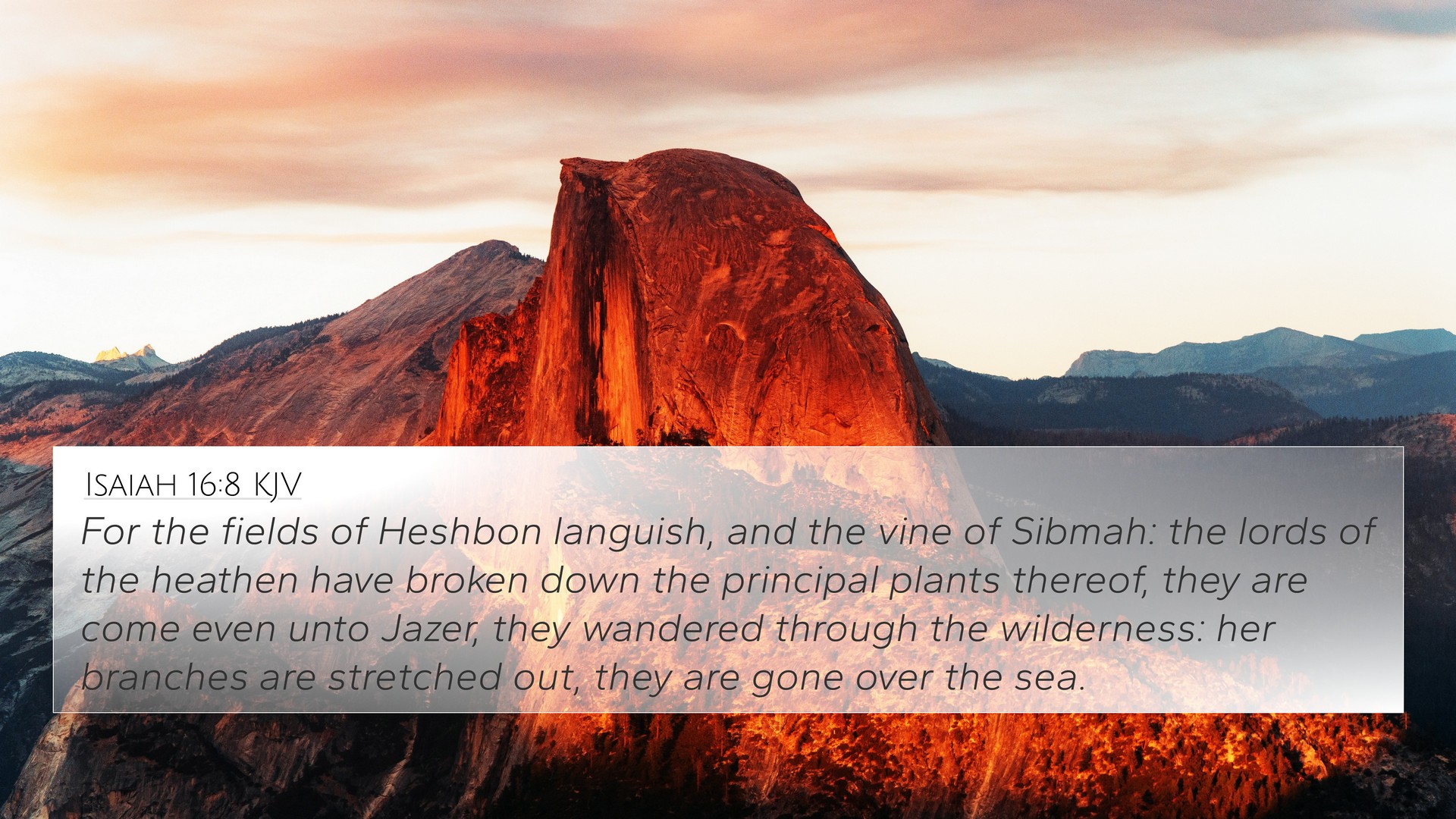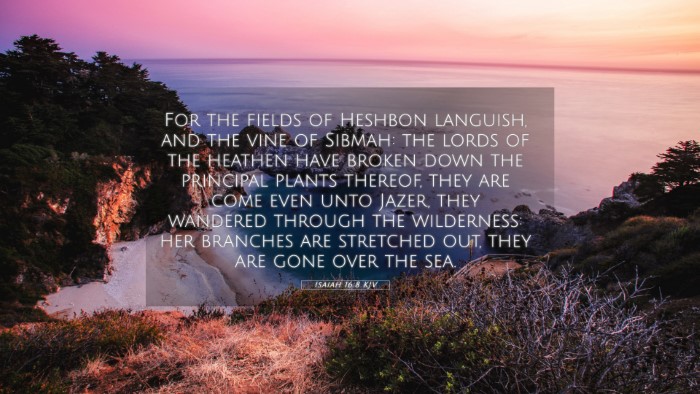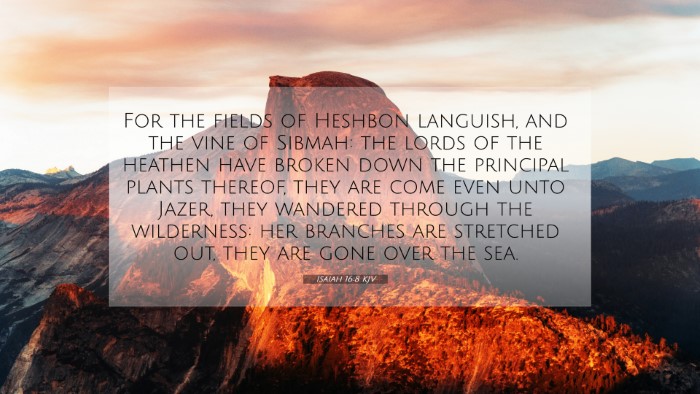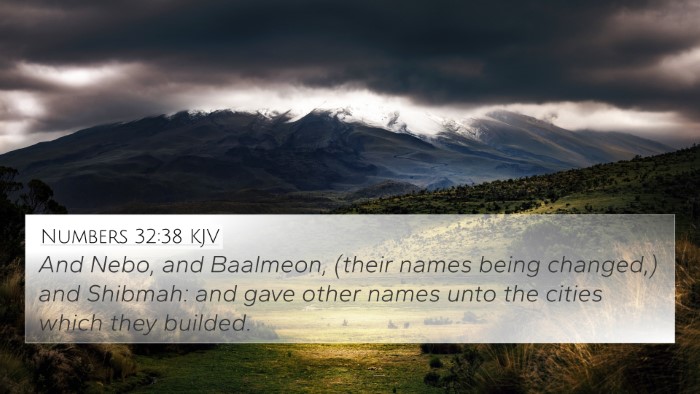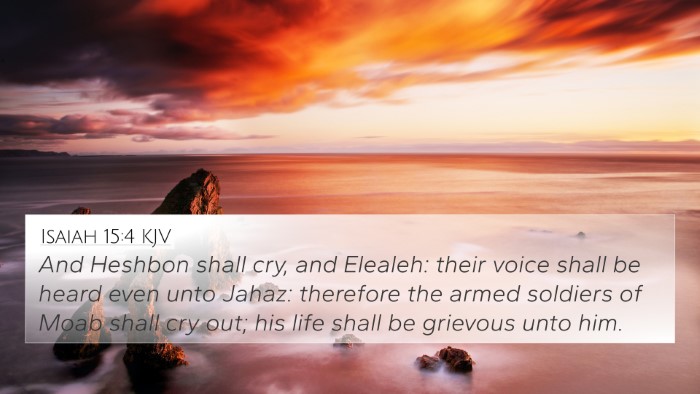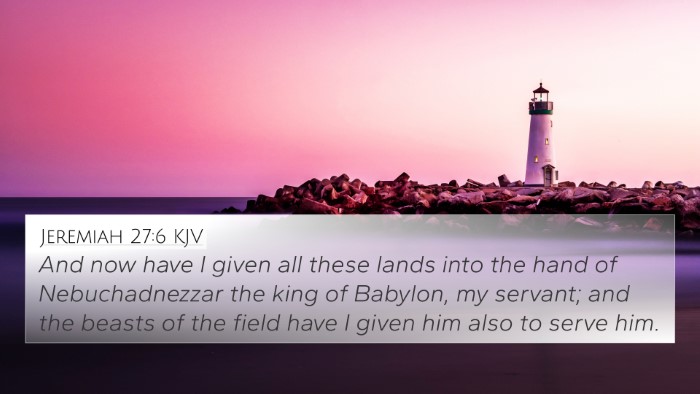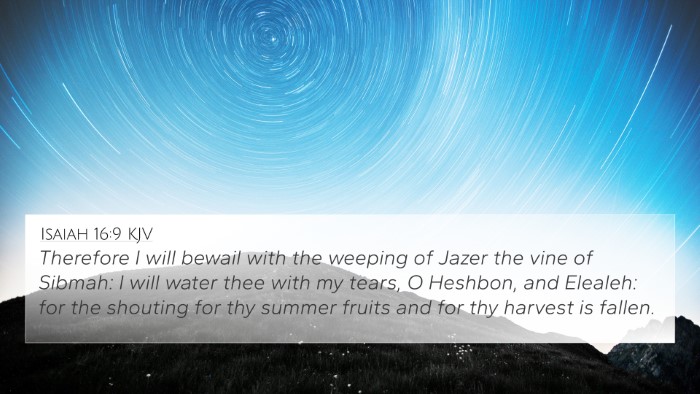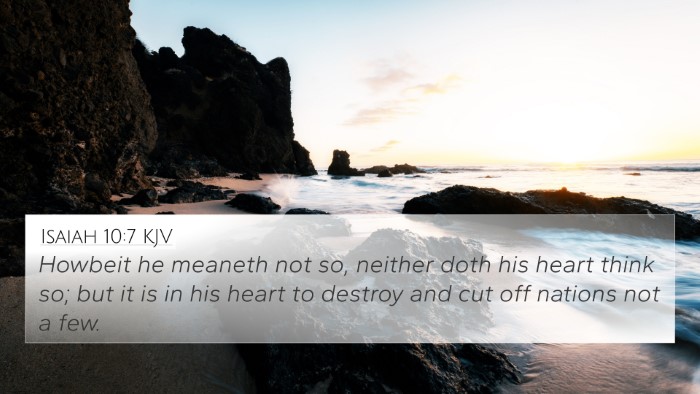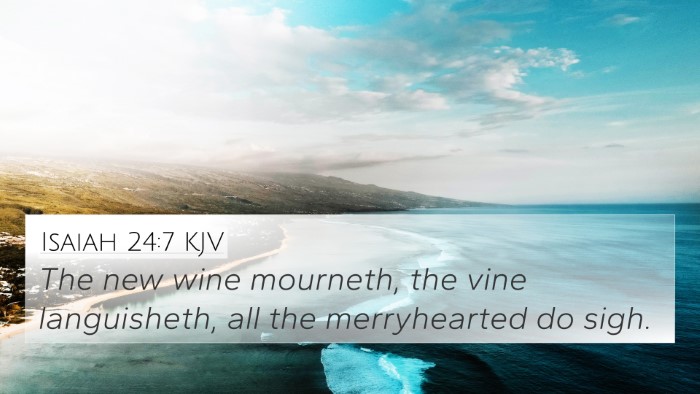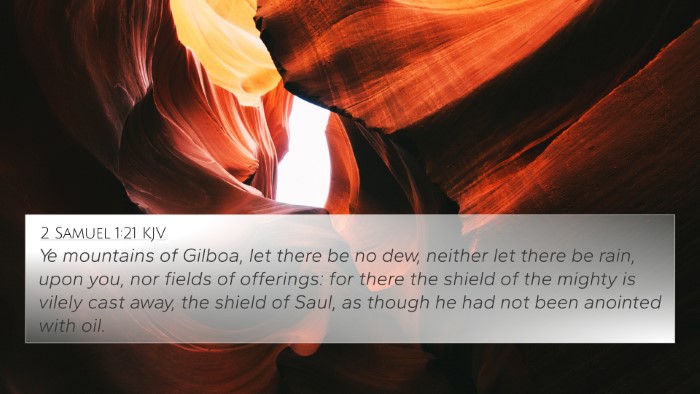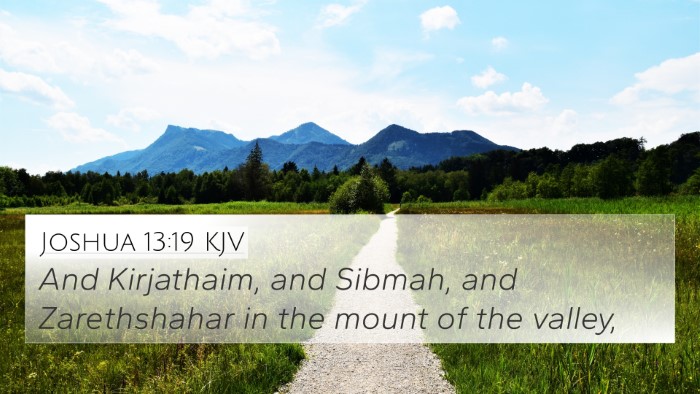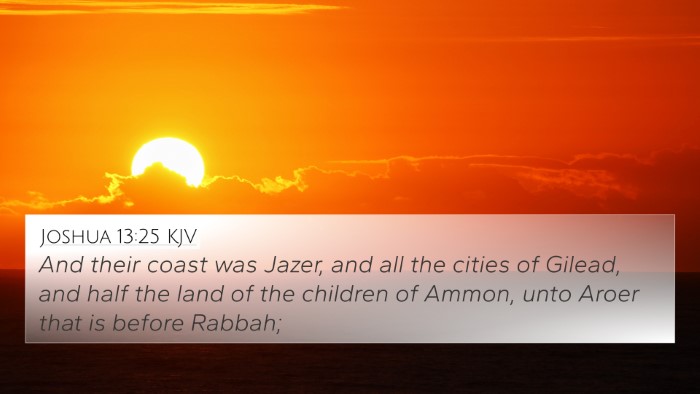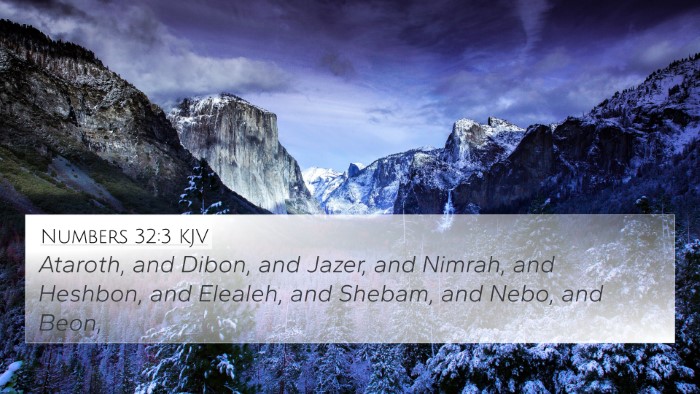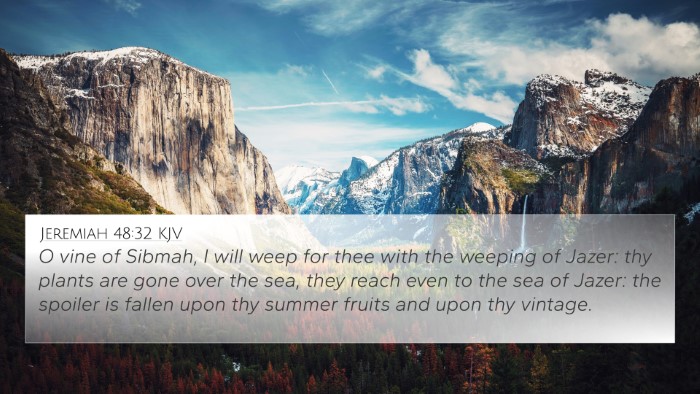Understanding Isaiah 16:8
Isaiah 16:8 reads: "For the fields of Heshbon languish, and the vine of Sibmah: the lords of the heathen have broken down the principal plants thereof, they are come even unto Jazer, they wandered through the wilderness: her branches are stretched out, they are gone over the sea."
This verse comes in the context of a prophecy against Moab, illustrating the desolation brought upon this nation as a consequence of their transgressions. Various commentaries provide a deeper insight into the implications of this verse.
Commentary Insights
Matthew Henry's Commentary
Matthew Henry notes that the devastation in Heshbon and Sibmah symbolizes not just physical destruction, but also spiritual desolation. The glory that was once recognized in these lands is now diminished. The “lords of the heathen” signify external forces leading to a breakdown of the Moabite nobility. The imagery of vines withering represents a loss of joy and prosperity.
Albert Barnes' Notes on the Bible
Barnes highlights the geographical significance of Heshbon and Sibmah, emphasizing that these places were instrumental in Moab’s stability and prosperity. The verse reflects the consequence of turning away from God, where abundance turns into scarcity, and fruitful lands become barren. The mention of Jazer indicates the wide-reaching effects of the calamity as it extends beyond localities to impact entire regions.
Adam Clarke's Commentary
Adam Clarke provides a detailed examination of the terms used in this verse, focusing on the metaphor of the vine—a common symbol of Israel's relationship with God. The cutting down of the principal plants indicates the loss of covenantal blessings. Clarke notes that the actions of the “lords of the heathen” signify oppression and suggest that the destruction was allowed by God as part of divine judgment.
Connections Between Bible Verses
Isaiah 16:8 connects with various verses throughout Scripture, revealing a broader narrative of judgment, redemption, and the human condition. Below are some related Bible verses that enhance understanding through cross-referencing:
- Jeremiah 48:32: Reflects on the lament over the vineyards of Moab, confirming the message of desolation found in Isaiah.
- Ezekiel 25:8-11: Condems Moab for its arrogance and serves as a warning regarding God’s judgment.
- Deuteronomy 29:23: Describes the consequences of turning away from the covenant, linking to the themes of decay in Isaiah.
- Isaiah 15:6: Discusses the desolation of Moab, providing context for the judgment pronounced in Isaiah 16.
- Micah 6:5: Reminds Israel of the transgressions of Moab, highlighting the cyclical nature of sin and judgment.
- Isaiah 5:6: Uses similar imagery of vines to express the consequences of rejection of God.
- Psalms 80:9: Contains imagery of God’s care for His vine, emphasizing contrasts with Moab’s desolation.
Thematic Bible Verse Connections
This verse, while detailing the downfall of Moab, establishes themes relevant to any study on judgment and redemption in the Bible. These themes can be explored through:
- Divine Judgment: Seen through the destruction of nations due to their rebellion.
- Restoration: The promise of eventual restoration for those who turn back to God is prevalent in many prophetic texts.
- Consequences of Sin: The cause-effect relationship of sin leading to desolation is repeatedly illustrated throughout Scripture.
Cross-Referencing Bible Study
For those looking to study the Bible deeply, using tools for cross-referencing can enhance understanding. Here are some methods and resources:
- Bible Concordance: A valuable tool for locating verses and themes across Scripture.
- Bible Cross-Reference Guides: Offer organized connections between disparate verses.
- Cross-Reference Systems: Various Bibles include alternating verses in the margins for easy access.
- Bible Reference Resources: Study Bibles often provide insights and connections right on the page.
User Intent Keywords
When studying Isaiah 16:8, users commonly seek to understand related verses, the thematic connections with other scriptures, and specific applications to their lives. It’s beneficial to ask:
- What verses are related to Isaiah 16:8?
- Find cross-references for this verse in the context of judgment and restoration.
- How do passages in Jeremiah and Ezekiel reflect similar themes of desolation?
Conclusion
Isaiah 16:8 serves as a solemn reminder of the consequences of turning away from God, illustrated through vivid imagery and historical contexts. By engaging with public domain commentaries and utilizing cross-referencing tools, one can gain a deeper understanding of its meaning and relevance.
